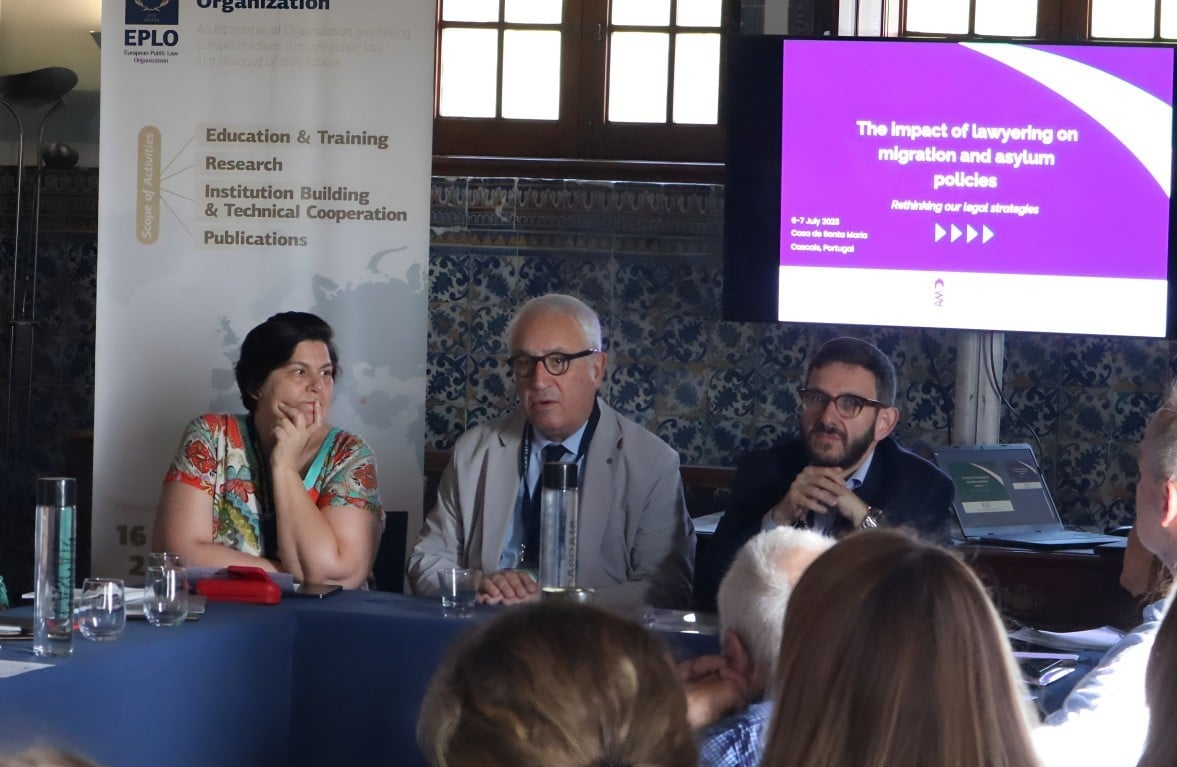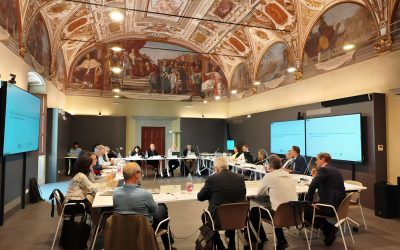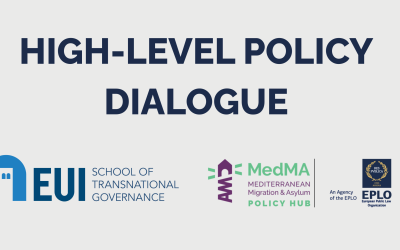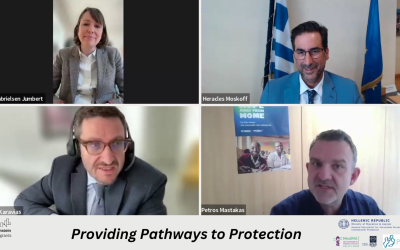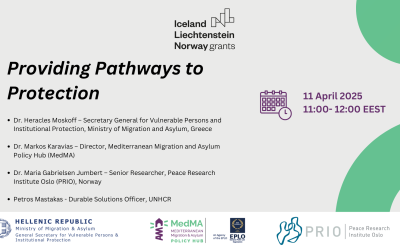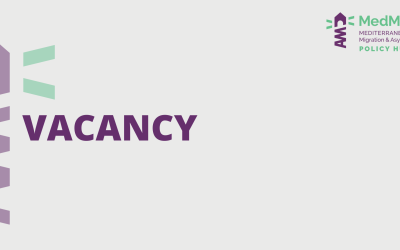MedMA organized a thematic workshop on the role of legal strategy in advancing alternative migration and asylum policies, in cooperation with Simon Cox.
The workshop provided an opportunity for migration/asylum law practitioners, policy experts and other key stakeholders to engage in frank discussion, share experience and knowledge on migration/asylum litigation, including on opportunities, challenges and pitfalls, to investigate how the work undertaken before international and supranational courts can impact on the development of policy in the field and to brainstorm on policy areas migration policy shift is necessary and possible. The event was held on July 6&7, 2023 at the regional branch of EPLO in Cascais, Portugal.
You may read the concept and the schedule below:
CONCEPT
Migration and asylum policy on a national and European level has over the last years been characterised by a turn to securitisation of the border (through the creation of physical barriers), and externalisation (through arrangements with third states) both geared towards limiting access to territory and increasing returns. At the same time, there is slow progress on the development of sustainable legal pathways for people on the move.
The shift from the welcoming of refugees in 2015, especially in destination states of Central and Northern Europe, towards the espousal of deterrence policies and policies against secondary movements of asylum seekers has been swift. The events along the Evros, Ceuta and the Belarussian borders have injected the concept of instrumentalization into the mix of restrictive practices. Outside the European Union, the United Kingdom has oriented itself towards an extreme form of externalisation in pushing forth with the Rwanda plan, as well as opting for a drastic tightening of asylum procedures.
Securitization and externalisation seek to keep asylum applicants and migrants outside the scope of the EU acquis and the jurisdictional reach of international human rights instruments. Thus, the question of an accountability deficit looms large over Europe.
At the very same time that European States have sought to keep migrants beyond the territory, and therefore beyond the reach of EU and international law, the exodus of Ukrainians as a result of Russia’s invasion heralded a paradigm shift in uniting Europe towards the purpose of offering protection and lifting Dublin-type restrictions to the mobility of those fleeing the conflict. Yet, this paradigm shift has up to date been restricted to the case of Ukraine, and there has been little change in the overall tendency of European migration and asylum policy.
The image conjured is one of contrasting narratives: border protection/compliance with fundamental rights, stemming of irregular arrivals/safe pathways, criminalization of smuggling/criminalization of solidarity, enhanced cooperation with third countries/safe third countries and so on.
At the very same time that European States have sought to keep migrants beyond the territory, and therefore beyond the reach of EU and international law, the exodus of Ukrainians as a result of Russia’s invasion heralded a paradigm shift in uniting Europe towards the purpose of offering protection and lifting Dublin-type restrictions to the mobility of those fleeing the conflict. Yet, this paradigm shift has up to date been restricted to the case of Ukraine, and there has been little change in the overall tendency of European migration and asylum policy.
The image conjured is one of contrasting narratives: border protection/compliance with fundamental rights, stemming of irregular arrivals/safe pathways, criminalization of smuggling/criminalization of solidarity, enhanced cooperation with third countries/safe third countries and so on. All the aforementioned trends have been contested before national authorities, international tribunals and human rights bodies by asylum and migration lawyers across and beyond EU jurisdictions. Both the Strasbourg and Luxembourg Courts have rendered judgments on aspects of border protection and forced summary removals, collective expulsions, reception conditions, asylum procedures (incl. safe third country concepts), safe passage and humanitarian visas, the application of Regulation 604/2013 (Dublin III), as well as the condition of undocumented migrants.Whereas civil society has followed up to the execution of these judgments (especially through communications to the CoE Committee of Ministers), the pace in the execution of judgements by ECtHR remains slow and evidences the need for synergies on a national level between civil society, national human rights institutions and other stakeholders.
It is now crucial – in the shadow of ongoing negotiations on the New Pact – that we take stock of the significant work undertaken by lawyers on a national and international level, and the impact it has had on the shaping of migration and asylum policy.
SCHEDULE
| Day 1 | Day 2 |
|---|---|
|
Opening Remarks
|
Implementation & Advocacy
|
|
Border Securitization
|
Final Remarks: The Way Forward
|
| Regularisation-Legal pathways Moderator: Jeff Crisp, Refugee Studies Centre
|

